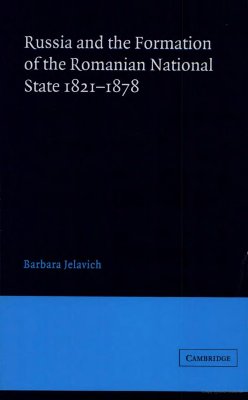You are here
Russia and the formation of the Romanian national state, 1821-1878

This book has a double emphasis: it examines the role played by tsarist Russia in the formation of an independent Romanian national state, and it discusses the reaction of a Balkan nationality to the influence of a neighboring great power that was both a protector and a menace. In the early nineteenth century the centers of Romanian political life were the Danubian Principalities of Moldavia and Wallachia, which were both under Ottoman rule but which had separate, autonomous administrations. Although welcoming Russian aid against the Ottoman Empire, the Romanian leadership at the same time feared that the Russian government would use its military power to establish a firm control over the Principalities or would annex Romanian lands, as indeed occurred in 1812. Here this difficult relationship is examined in detail as it developed during the century in connection with the major events leading to the international acceptance of Romanian independence in 1878.
